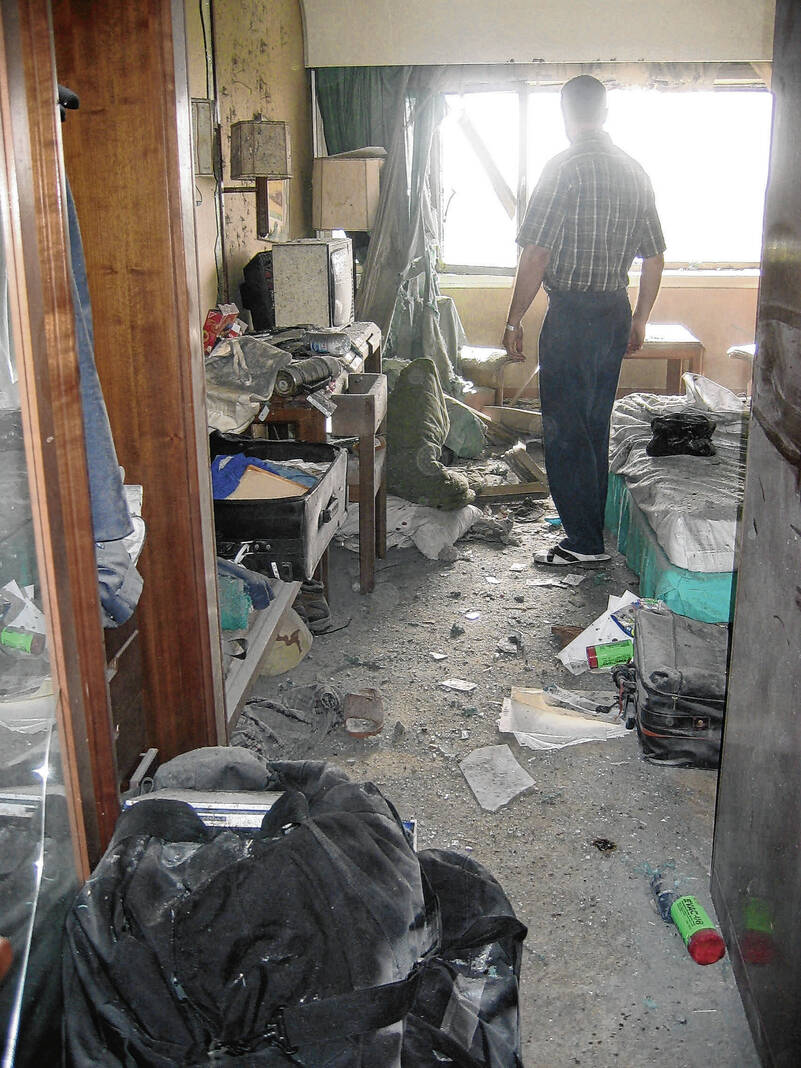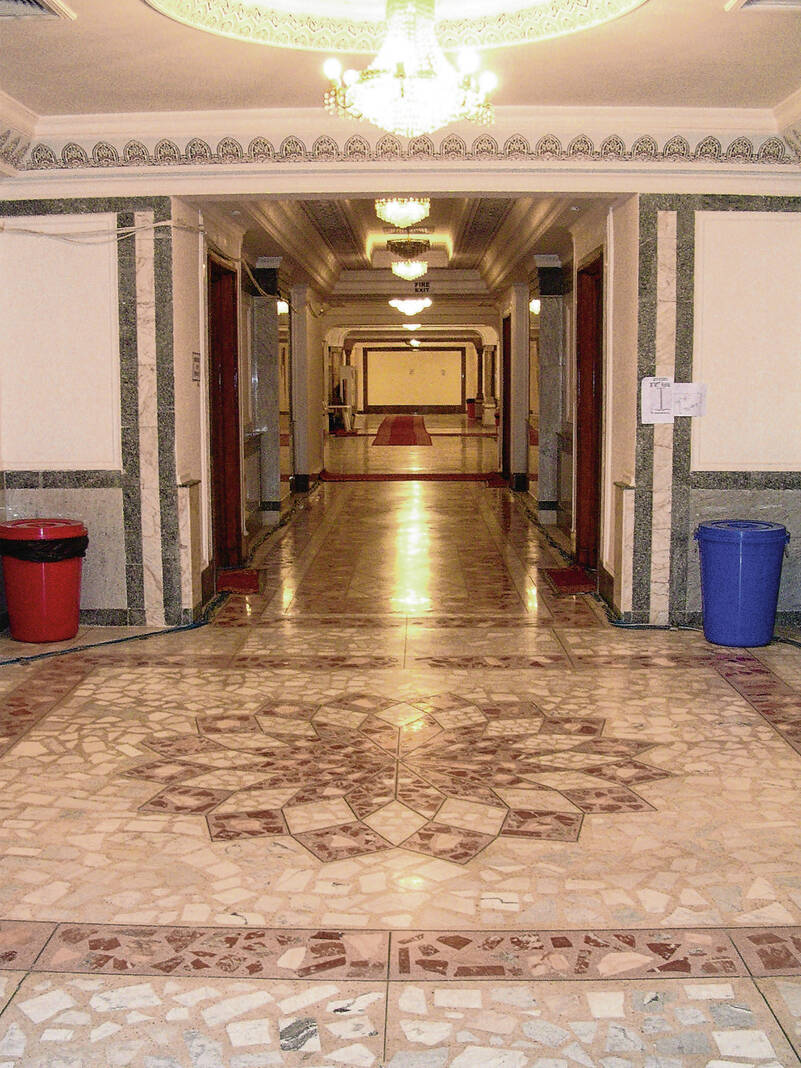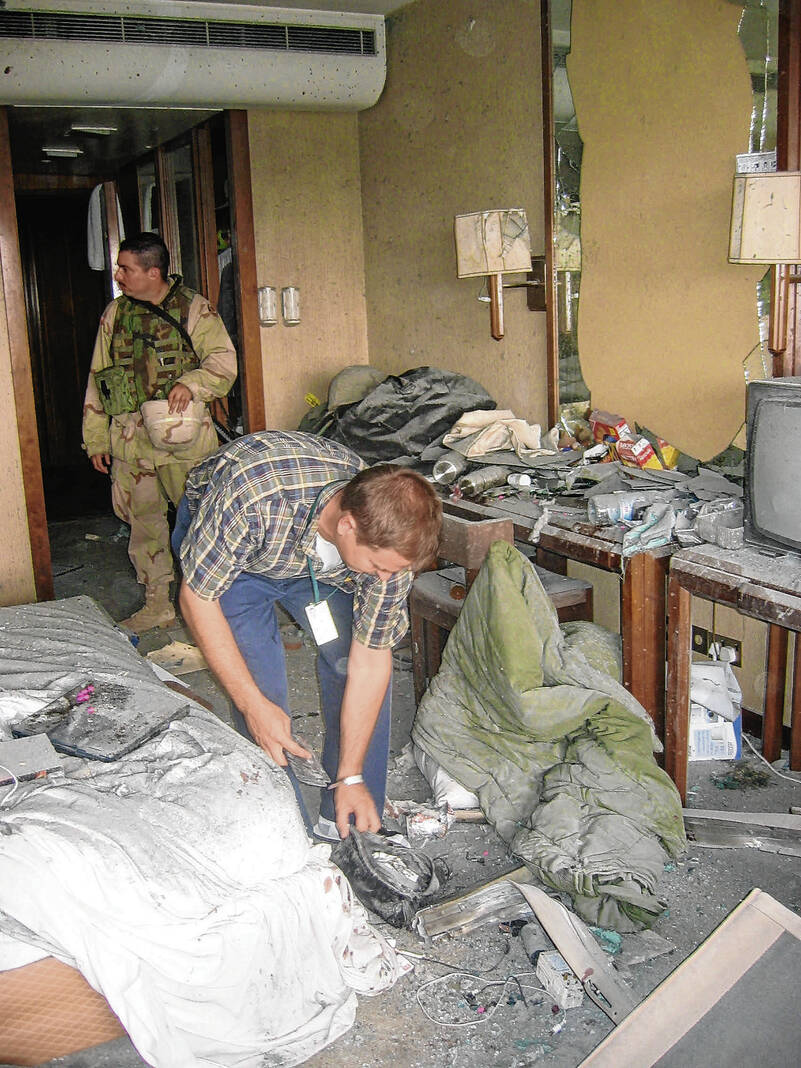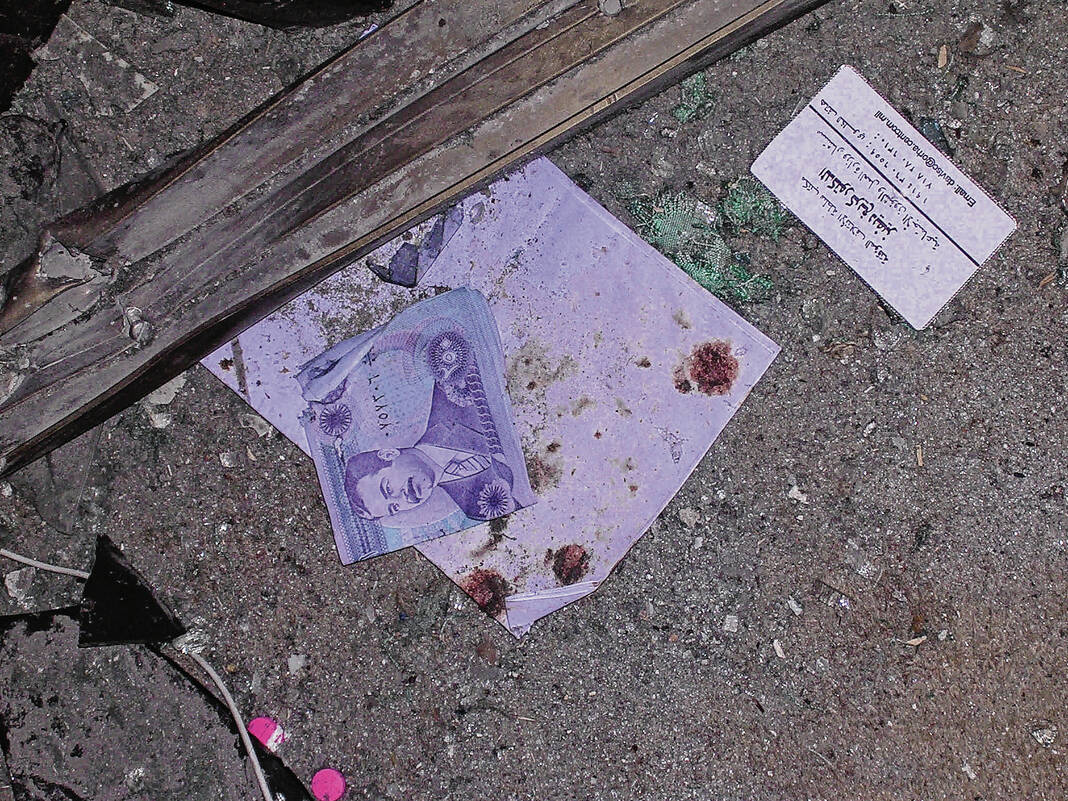Jim was a friend.
He also was a victim of one of life’s cruel ironies. We have all seen them, experienced them or witnessed them firsthand or at the very least heard about them.
Jim was a Vietnam veteran who worked with me at the Bureau of International Labor Affairs at the U.S. Department of Labor in Washington, D.C.
Shortly after the U.S. occupation in 2003, a bureau supervisor came into my cubicle to ask me to go to Iraq to help rebuild the Ministry of Labor and Social Affairs, and I agreed immediately. I was the only one of 100 or so bureau staff who spoke Arabic, but my labor experience was limited to projects that withdrew children from the worst forms of child labor across the globe and returned them to school.
The supervisor also told me he would pair me with Jim, who had significant workforce development experience — training people for the labor market — in Bosnia. Jim would arrive a week or so behind me.
However, I was assured I needn’t worry about leadership. Another veteran labor expert, who had been seconded to the Office of the U.S. Trade Representative, was conducting a short-term assignment at the Coalition Provisional Authority in Baghdad. The USTR official would show me the ropes until Jim arrived.
I flew to Fort Bliss in Texas for processing in August while Jim remained behind. He kept postponing his dates for personal reasons, which I felt was very selfish. He cited preplanned family events, but after each event, a new one seemed to pop up. Only years later would I understand.
One day at Fort Bliss, I wrote my father a letter. I said I felt everything I had done in my life up until that point — living in Pakistan and India, living through the civil war in El Salvador, studying Arabic in Jordan, traveling in Egypt and Palestine, visiting Afghanistan twice, publishing a book on the Middle East, among other experiences — had prepared me for this assignment. I was now equipped to deal with whatever life threw at me.
Boy was I ever wrong.
The Department of Labor assigned me to CPA in Baghdad, where I would become deputy senior adviser to MOLSA. The night I arrived at Saddam’s palace inside the Green Zone, I was given a bed in some dark, gloomy room with dozens of other civilians and military officers from a host of other European and Middle Eastern countries.
It was nearly midnight and I couldn’t sleep, so I went to the MOLSA advisers’ office in another part of the palace, but naturally, it was locked. I then strolled through the palace and found myself outside. I sat on the steps, watching the crescent moon — symbol of Islam — suspended over palm trees. I attempted to reconcile the surreality of the situation.
I noticed a few other insomniacs were standing or sitting, smoking cigarettes. The occasional military helicopter flew overhead as I watched civilians and military carrying on conversations in an array of languages as they passed back and forth in front of me. Up and down the stairs. Two men were unloading cases of plastic water bottles.
The August evening heat was tolerable. I could smell dust in the air. I shuffled these few moments of serenity against the backdrop of Baghdad. A civil war was brewing outside the walls of Green Zone.
Although I couldn’t hear gunshots at that moment, I knew insurgents were planning terror attacks against civilians at the CPA. A few days earlier, an Iraqi insurgent had stepped up behind an American soldier on the street in Baghdad and shot him in the back of the head.
I didn’t know it at the time, but things were about to get worse — much, much worse.
The next morning, I walked into the MOLSA advisers’ office. There were two U.S. Army civil affairs officers working already. A lieutenant colonel served as senior adviser. The other was a very intelligent and professionally mature captain. They would both become friends and protectors.
The USTR labor adviser was a stocky man in his late 50s or early 60s who wore close-cut white hair with a neatly trimmed matching beard. He was a bit of a legend at DOL, known for two-martini lunches and his short temper. He was also a bit of bull in a China shop. One of the first things he told me was “I am a train, and if you get in my way, I will run over you.”
After initial introductions, I learned we were going to the MOLSA compound the following day for a meeting with Iraqi officials to discuss a revival of WFD services.
The labor adviser asked me what I knew about the field. I told him very little. He frowned and gave me an International Labor Organization book on the topic and said, “Read it. You are now our new expert. We are going to go into that meeting and introduce you as our new expert on employment and workforce development, and you had better not tell them any different.” I think it was at this point he told me about him being the train.
Despite his irritable nature, the labor adviser was generally likable and friendly when he was not threatening to run somebody over. He was extremely competent and had lots of good stories about working overseas.
One thing I thought I could bring to the team was a better understanding of the Middle East and Islam. I had spent much of my life studying the history, culture and religion.
I had read the Koran twice in English and parts of it in Arabic. Arabs in Bethlehem, Cairo and Amman had treated me and my family with unexpected kindness and hospitality. Muslims in Pakistan, India and Afghanistan had protected and cared for me.
Yes, today’s insurgents were Muslims, but they only represented an extremist sliver of Muslim society. They did not represent Islam any more than American religious extremists who bombed or terrorized abortion centers represented mainstream Christianity.
So I read the ILO book, studied WFD, made some notes and overnight became CPA’s “expert” on WFD and employment. I set up an office in the ruins of an old training center at the MOLSA compound about 30 minutes from the palace.
Jim’s delayed mobilization stretched throughout all of August and September. About this time, the USTA adviser left for D.C. and gave me his hotel room at the Al-Rashid Hotel to save for him until he returned,which he never did. So I gladly moved out of the communal bedroom of the palace and into the hotel, which was on the edge of the Green Zone. By mid-October, I was still alone.
When Jim finally arrived, he moved into the Al-Rashid Hotel with me. I made myself a pallet of a sleeping bag and some blankets on the floor, and Jim took the bed. I was ecstatic. He did have a lot of experience, and he patiently and methodically shared ideas, strategies and memories. I grew to trust him.
In the evenings, we would sit around the pool. Jim and my other MOLSA colleagues would drink beer, and I would drink Diet Coke.
We could hear automatic rifle fire just outside the Green Zone. He would say, “That is an M-16” or “That is a Kalashnikov.” Over the next several months, I also would learn the distinction between them.
On the night of Oct. 25, we were having a drink around the pool, and Jim commented on how he felt that Baghdad was much more dangerous, compared to Vietnam when he was stationed there. I grew tired and ready for bed, but Jim and the others encouraged me to stay for another round. I had another Diet Coke and tried to absorb the experience.
Finally, I excused myself and retired to the room. I fell asleep on the floor, and Jim came in a little later and slept in the bed.
Around 6 a.m. the next day, I woke up to use the bathroom. Even back then, my prostate was forcing me up two or three times a night. I remember blaming that last soft drink for waking me at that hour.
A few seconds later, I reached the hall, and the room exploded. The detonation was so loud I couldn’t hear it. I touched the back of my head with my right hand and saw blood. I turned around to see the thick curtains billowing horizontally like flags in the wind. A heavy cloud of concrete dust and smoke filled the room. I could smell the burnt odor of cordite.
Several things went through my head at once: A mortar had struck our room … The blood on my hand meant I had been struck in the head with shrapnel … That small sliver of Muslim extremists had tried to kill me … I had to flee now … That last Diet Coke had saved my life.
As I ran, a second shell struck the room.
Marvin Gray’s “Welcome to the Dark Side” captured much of the horror, the fear and the guilt of that day. When I found myself outside the hotel, I suddenly realized I had abandoned Jim. So I went back in determined to ascend the stairs and find Jim, but before I got to the stairwell, I found Jim on a sofa with a towel around his arm. A man was holding pressure on a huge wound to keep him from bleeding out.
I took over for the man and escorted Jim outside to safety, holding pressure on the wound until the military ambulance arrived some 20 minutes later. He underwent emergency surgery and was medevacked to Germany the following day. His time in Iraq had come to an end, but mine had just begun.
The 26th happened to be my wife’s birthday. I called her to let her know I was OK before she saw it on the news.
That afternoon, I returned to the room to get our bags. The pallet on the floor was destroyed with shrapnel the size of deer slugs. One of life’s ironies for me was the realization that if I hadn’t had that additional Diet Coke the night before, I would not have gotten up at that precise moment before the mortar hit. I would have died.
Another irony was that despite all of my efforts to educate my peers on the difference between the sliver of Muslim extremists and the vast majority of nonviolent Muslims, the sliver had killed one man and injured about a dozen more.
For Jim, the irony was not so much that he had survived a year in Vietnam as a soldier with zero injuries, only to be wounded as a civilian in Baghdad within days of his arrival.
In fact, if I were in D.C., Jim and I would meet for lunch every Oct. 26 to celebrate our survival. We always felt like the luckiest two men on Earth.
Rather, the cruel irony emerged a few years later when — after surviving both Vietnam and Iraq — Jim fell down some stairs to his death.
Today, I think about Jim sometimes when I am running stairs or while riding my bicycle cross-country along the Gulf Coast.
With this new cancer diagnosis, I ask myself if I too will fall victim to another wicked twist of fate.
After surviving civil wars and insurgencies in El Salvador, Iraq, Yemen, Afghanistan, Somalia and Pakistan, will it be the prostate cancer that takes me out? Or perhaps get clipped while riding my bike through Mississippi? Or will I trip while running stairs and fall to my death?
Craig Davis, who was born in Seymour and graduated from Brownstown Central High School, currently lives in Tegucigalpa, Honduras, and works for a U.S. government contractor on school-based violence prevention. He is the author of “The Middle East for Dummies” and is conducting research for a genealogy and social history book in Kurtz and Freetown. You can visit the Living with Cancer weekly blog at MarvinGray.org and write him at [email protected].






